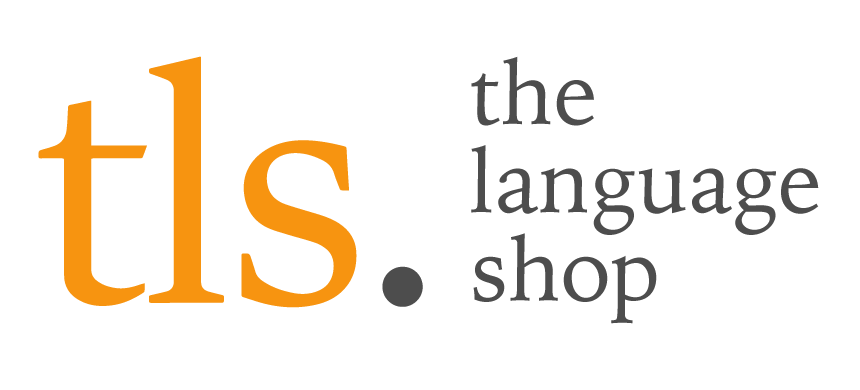Celebrations Around the World: Easter
What:
Easter celebrates the resurrection (rising from the dead) of Jesus Christ, following his crucifixion and burial.
Why:
Easter is one of the most important festivals for Christians, as they view Christ’s resurrection as proof that he is the Son of God and Messiah. It gave his followers new hope and renewed faith.
How:
Easter Sunday follows Holy Week, which is week of special religious observances, beginning the Sunday before Easter with Palm Sunday (Jesus’s entry to Jerusalem), Spy Wednesday (the betrayal of Jesus by Judas), Maundy Thursday (the Last Supper) and Good Friday (the crucifixion). People celebrate by attending a special church service and exchanging gifts that signify new life, such as chocolate eggs. Seasonal food such as lamb, hot cross buns or simnel cake is sometimes eaten. In many European cultures, there is special bread or cake cooked at Easter.
We always love to hear from customers about their own celebrations. Please get in touch if you have observed any of April’s festivals and would like to share stories or photos with us!
Service under the Spotlight: Translation and transcription
Each month, we will be getting better acquainted with a TLS service; when and why you might need it, how to book it and how to make the most of the booking.
You may be new to the world of booking language support, or perhaps you book the same service each time because you don’t know what else is out there, or perhaps you have never considered that something different might work for you – this is for you!
In this issue, we are looking at our translation and transcription service.
It is for you if:
You have a document that you need to send to a service user that cannot read English, or an audio file that you need in the written word.
Our translators will quickly and efficiently turn your document into the target language, localising anything that needs it (eg explaining any cultural references for an non-English audience).
Transcribers will take your audio file and type it up for you.
It is not for you if:
You really need a live conversation. A translation is not a substitute for an interpreted conversation; for example, if you are working in health care, it is better to use an interpreter than to translate information on a patient’s condition, which may leave them with questions you cannot answer.
If you want us to support a live conversation, please speak to our bookings team for a solution.
When it works best:
In any situation where the written word cannot be understood by you or your service user, or where audio files are not an appropriate format (eg you need a written transcript from a long, recorded meeting).
Tips to get the most from your booking:
If you are commissioning a translation for a service user, always check beforehand that they can read the language they speak. Sometimes people will speak one language and read another.
- Providing the translator with any extra information you think may be relevant will help them to understand the job better, eg your audience, any context or technical information.
- Our translators work fast, but please remember that this process can take more time than interpreting. If you are in a hurry, let the team know and we will do everything we can to assist you.
Call our bookings team for guidance and support on 0808 175 1230.
March dates for your diary
Calendar snapshots
7th – Purim, Judaism
Purim celebrates an ancient victory of the Jewish people over their enemies and persecutors. People dress up, give money to charity and share a Purim feast and gifts with family and friends.
14th – Nanakshahi, Sikhism
The Sikh Nanakshahi calendar was introduced in 2003, so that celebrations always fall on the same date in the Gregorian calendar. It is named after Guru Nanak, the founder of Sikhism. Special prayers are held in Gurdwaras to usher in the new year.
23nd - Ramadan, Islam
Muslims fast during this holy month, to feel closer to God and remember the suffering of others. Muslims also attend special services at their mosque, endeavour to read the entire Qur’an and give more to charity (Zakat).
This month’s dates at a glance
Religious/cultural
1 – St David’s day, Christian
2 – Nineteen day fast begins, Baha’i
5 – Feast of Orthodoxy, Orthodox Christian
6 – Magha Puja, Buddhist
7 – Holika Dahan, Hindu
7 – Purim, Judaism
8 – Lailat al Bara’ah, Islam
8 – Holi, Hindu
8-10 – Hola Mohalla Sikh
14 – Nanakshahi (new year), Sikh
17 – St Patrick’s day, Christian
19 – Feast of Saint Joseph, Christian
20 – Ostara, Wicca and Pagan
20 – Nowruz (new year), Persian and Zoroastrian
21 – Naw-Rúz, Bahá’í
22 – Chaitra Navratri begins, Hindu
22 – Ugadi (new year), Hindu
23 – Ramadan begins, Islam
25 – Annunciation to the Theotokos, Orthodox Christian
25 – Annunciation of the Virgin Mary, Christian
26 – Khordad Sal, Zoroastrian
28 – Navpad Oli begins, Jain
30 – Rama Navami, Hindu
Awareness and events
1 – Zero Discrimination Day
Self-Injury Awareness Day (SIAD)
International Wheelchair Day
3 – World Hearing Day
8 – International Women’s Day
8-10 – TUC’s Women’s Conference
19 – Mother’s Day
20 – Spring Equinox
20 – International Day of Happiness
21 – International Day for The Elimination of Racial Discrimination
21 – World Down Syndrome Day
24 – World Tuberculosis (TB) Day
25 – International Day of Remembrance of The Victims of Slavery and The Transatlantic Slave Trade
27 Mar-2 Apr – World Autism Acceptance Week
30 – World Bipolar Day
31 – International Trans Day of Visibility
Rare Language Fact File: Nicaraguan Sign Language
Native to: Nicaragua, originating in the Managua region
Number of native speakers: approx. 3,000
Spoken by: Deaf Nicaraguans
Learn some: Find out more about this unique language and learn some signs by watching this one minute film.
Interesting facts:
- In the aftermath of the 1980s Sandinista Revolution in Nicaragua, the new administration implemented huge literacy programmes. Deaf children were brought together in a special school to learn Spanish. However, outside of classes, the children began to develop their own sign language. The younger children took the vocabulary created by their older peers and built a grammatical system, which was then adopted by the older children. Linguists came to study the children and their language from across the world.
- Nicaraguan sign language (NSL) is absolutely unique, in that it is the only language ever to have been created without any other linguistic influences and recorded from its inception.
- NSL was born in the political isolation of the revolution; this is a reason often cited for the language’s survival to this day, whereas other local and regional sign languages have been replaced by American Sign Language (ASL). In neighbouring Costa Rica, for example, ASL is the usual first language for deaf people.
The Language Shop provides support in any language you may need, including many of the rarer ones. Please speak to your account manager about your requirements.
Celebrations Around the World: Holi
What:
A Hindu festival celebrating the arrival of spring, good over evil, light and fertility.
Why:
There are a few myths behind the festival, but the most commonly told is of a king named Hiranyakashipu, who demanded to be worshipped like a god. His son, Prahlada, worshipped Vishnu instead. Prahlada’s aunt, Holika, decided to burn him to death on a pyre, but Halika’s cloak, which was protecting her from the flames, wrapped around Prahlada and Holika died instead. Vishnu appeared and killed Hiranyakashipu.
How:
Holi begins with Holika Dahan, where celebrators build fires and burn wood, to celebrate good triumphing over evil.
The following day is known as Rangwali Holi, where people go out and throw colourful powder paints and water at each other.
We always love to hear from customers about their own celebrations. Please get in touch if you have observed any of March’s festivals and would like to share stories or photos with us!
Service under the Spotlight: British Sign Language Interpreting
Each month, we will be getting better acquainted with a TLS service; when and why you might need it, how to book it and how to make the most of the booking.
You may be new to the world of booking language support, or perhaps you book the same service each time because you don’t know what else is out there, or perhaps you have never considered that something different might work for you – this is for you!
In this issue, we are looking at British Sign Language (BSL) interpreting.
It is for you if:
You have a Deaf service user. BSL interpreting provides communication support for Deaf people, ie people with hearing loss who use British Sign Language (BSL).
Your BSL interpreter will communicate your spoken language into sign language for the service user, and vice versa.
It is not for you if:
Your service user is hearing impaired but does not know BSL; other language versions of sign language (eg Ghanaian Sign Language) are not interchangeable. In this case, please speak to our bookings team to see if we can offer a solution.
When it works best:
In all face to face bookings with a Deaf service user. It may be appropriate for video remote interpreting bookings too.
Tips to get the most from your booking:
- When booking, ask whether you will need one or two interpreters. This will depend on the length of the booking.
- If possible, send the interpreter any preparation material in advance so that they know what to expect and can prepare as much as possible.
- Be aware that the service user and interpreter need to see each other clearly. Interpreters can advise on the best place for them to be.
Call our bookings team for guidance and support on 020 3373 4000 or 020 8430 1023.
Meet The Team: Amy Soutter, Head of Client Delivery
Every month, we introduce you to one of our team. This month, meet Amy Soutter, Head of Client Delivery.
Tell us about the role you do for TLS.
I am the Head of Client Delivery. I work with the customer and operations teams in language services and examinations to ensure the successful delivery of our major contracts, including projects. I am also responsible for client reporting and issue resolution. I manage the interpreter engagement functions too, ensuring there is a feedback loop between TLS and interpreters.
What's been your favourite project at TLS?
This is very hard for me to answer! They are so varied. Recent highlights would be the video project we completed with Newham Council, where we created videos for residents in different languages, and the development of our on-demand service with Barking, Havering & Redbridge University Trust. I also really enjoy working on the examinations side of the business as there are always new challenges, something different every day.
What has been your biggest challenge?
The transition of the interpreting service from majority F2F provision to telephone/video during the Covid-19 lockdown. We had to change the way that we delivered interpreting services extremely quickly, as well as manage working remotely. It was a very hectic, uncertain time but we managed it. The remote service is now our largest, and growing.
If you didn’t do your current job, what would you like to do?
Growing up, I wanted to go into publishing, as I did a literature degree and love books. However, I did an internship at a publishing house when I was at university and decided it wasn’t for me. So, now I think it would probably be working with animals in some capacity. I cat-sit and dog-walk outside of work and I love it, so probably working with rescue animals.
Tell us something interesting about you.
During lockdown, I became very interested in birds/birdwatching. My (not so) hidden talent is identifying birds by their call. In 2020/2021, my boyfriend and I travelled to lots of different RSPB sites and bird reserves to spot rare birds. Since the world has opened up, we haven’t been able to do it as much, but we are trying to keep it up as we enjoyed it so much!
If you could meet someone, living or dead, who would it be and why?
I think it would be Georgia O’Keeffe, an American artist who died in 1986. She was prolific and created stunning abstract paintings but had to deal with sexist analysis of her art throughout her career. She was a non-conformist and a pioneer of modernism, and she created for herself rather than the art establishment. There are lots of artists I’d love to meet, but she’s probably my top choice.
What are your ambitions for the next 12 months?
Professionally, to continue delivering innovative, exciting projects for our customers.
Personally, we are hoping to buy a house so fingers crossed we will manage that within 12 months!
If you would like to be profiled, or know someone else who would, please get in touch by emailing zainub.patel@newham.gov.uk
The 2022 TLS customer survey results are in!
As with last year’s results, the top billing was our telephone and video remote interpreting service, which continues to grow in size and popularity. While last year 88% of you said that the quality of this service was high or very high, this year 93% of you rated the overall quality as good or excellent.
One customer commented, “When phoning to get an interpreter for telephone, the telephone team are lovely and always try hard to find someone for us.”
If you have not tried it yet, ask your account manager when it would be a good fit for you and your service users. Overall, it was a glowing report – thank you! You said that you value our speed, reliability, accessibility and interpreter quality. Traditional face to face interpreting was rated excellent or good by 90%, while 95% of you would recommend us to family or friends.
In the comments sections, we were pleased to read that so many of you rate our customer support highly; 94% said that the quality of support from TLS staff was good or excellent, one customer commenting: “They are very efficient and turn around your emails very quickly to solve any problems or adjustments. The emails are never generic and we can see who sent them, which is a nice touch.” Another simply said: “Nothing is ever too much trouble, always very helpful.”
We are very grateful to everyone who took the time to complete the survey, which will help us to identify your priorities and our areas for development over the coming year.
February dates for your diary
Calendar snapshots
2nd Imbolc, Pagan/Wicca
Falling at the midway point between the winter solstice and the spring equinox, this ancient festival marks the beginning of spring. Where Christianity and the old traditions have merged, the day is also celebrated by honouring St Brigid. Traditionally, straw dolls were made in her image and beds laid out in each home, to welcome her visit and blessing of the livestock.
18th Lailat al Miraj, Islamic
Lailat al Miraj remembers the Prophet Mohammed’s ascension into heaven. It is celebrated by Muslims across the world, with special prayers and a telling of the story, in which the Prophet received instructions from God for the Salat, the requirement for Muslims to pray five times per day.
22nd Ash Wednesday, Christian
Ash Wednesday is the first day of Lent in the Western Christian calendar. It is observed by attending special services at church, where ashes are used to mark people’s foreheads. These are made by burning the palm crosses from Palm Sunday, the weekend before. Christians often leave the ash on their foreheads all day as a public profession of their faith.
This month’s dates at a glance
Religious/cultural
2 – Imbolc*/Candlemas - Wicca and Pagan
3 – Setsunbun-sai - Shinto
5 – Triodion begins - Orthodox Christian
5 – Thaipusam - Hindu
6 – Tu BiShvat - Judaism
12 – Sunday of the prodigal son - Orthodox Christian
14 – Valentine’s day - Christian
15 – Nirvana day - Buddhist
18 – Maha Shivratri - Hindu
Lailat al-Miraj - Islam
19 – Meatfare Sunday - Orthodox Christian
21 – Losar begins - Buddhist
21 – Shrove Tuesday - Christian
22 – Ash Wednesday (start of Lent)- Christian
22 – Feast of the chair of Saint Peter - Catholic Christian
26 Feb-1 Mar – Intercalary days - Baha’i
26 – Cheesefare Sunday – Orthodox Christian
27 – Great Lent begins – Orthodox Christian
Awareness and events
1 – World Hijab Day
1-7 – World Interfaith Harmony Week
2 – Time To Talk Day
4 – World Cancer Day
6 – International Day Of Zero Tolerance To Female Genital Mutilation
6-12 – UK Race Equality Week
6-12 – Children’s Mental Health Week
7 – Safer Internet Day
11 – International Day Of Women And Girls In Science
12 – Red Hand Day For Child Soldiers
15 – International Childhood Cancer Day
17 – World Human Spirit Day
20 – World Day Of Social Justice
Rare Language Fact File: Ngatikese Creole
Native to: Sapwuahfik atoll, the Caroline Islands (Micronesia)
Number of native speakers: 15-20
Spoken by: The men of Sapwuahfik
Learn some: Ngatikese is a creole of English and Pohnpeian, the indigenous language of the island. Many words are very recognisable to English speakers, eg ‘my name’ is ‘mai nihm’, and the numbers one to five are ‘wan, tuh, trih, foh, faif’.
Interesting facts:
- Ngatikese is only spoken by men. Women and girls on the island can understand the language and sometimes use it to joke and make fun, but it is mainly used between men, especially at work. It can also be used to exclude Pohnpeian speakers.
- This came about because of an English invasion of the island in 1837, when all the indigenous men were killed. Some of the crew settled on the island and the resulting language, a creole or hybrid of English and Pohnpeian developed.
- The geography of Sapwuahfik has helped to preserve the language. While minority languages on other islands have absorbed other influences from shipping traffic and trade over the years, Sapwuahfik lies outside of these routes. Ngatikese has been described as an ‘echo of the voices of those 19th century sailors’.
The Language Shop provides support in any language you may need, including many of the rarer ones. Please speak to your account manager about your requirements.










